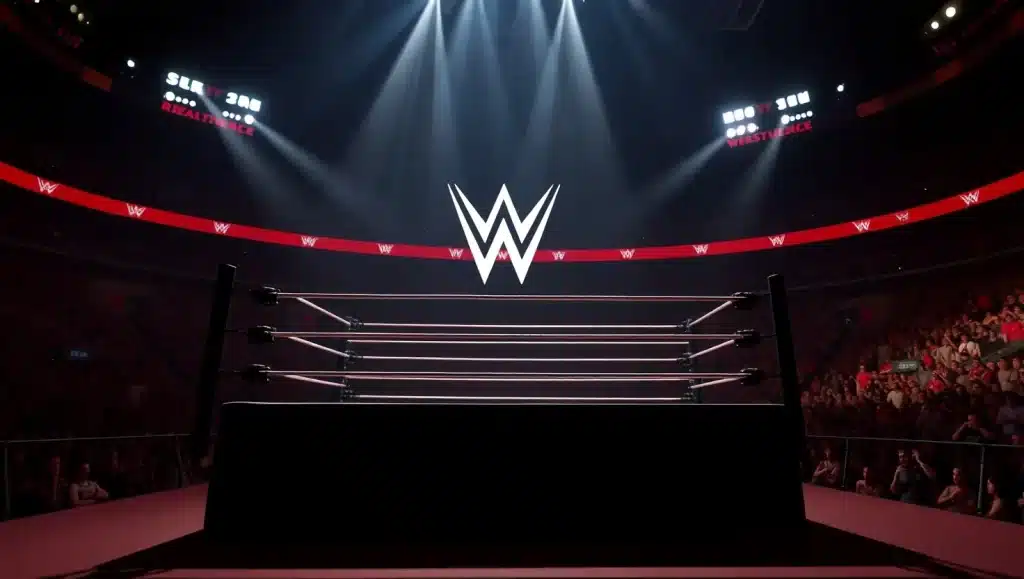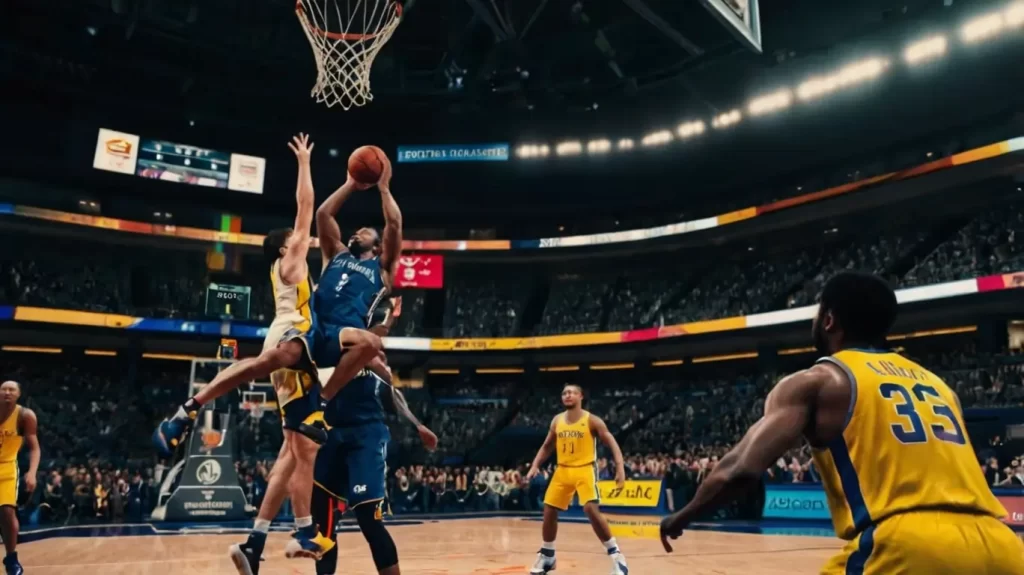When embarking on the journey to elevate your gaming setup, determining the best monitor size for gaming is paramount. The gaming universe teems with a plethora of display sizes, from the nimble 24-inch screens to the majestic ultrawide panels. Our mission? To navigate through this galaxy of options, dissecting the merits and pitfalls of each, guiding you to the monitor size that resonates with your gaming soul.
What Is The Best Monitor Size For Gaming: Common Monitor Sizes for Gaming
1. The Swift 24-Inch Champion
The 24-inch monitor, a staple in the gaming community, strikes a harmonious balance between visual clarity, responsiveness, and thriftiness. It’s the battleground where compactness meets the vibrancy of Full HD, making it a fortress for competitive gamers where every detail is sharp, and every movement fluid.
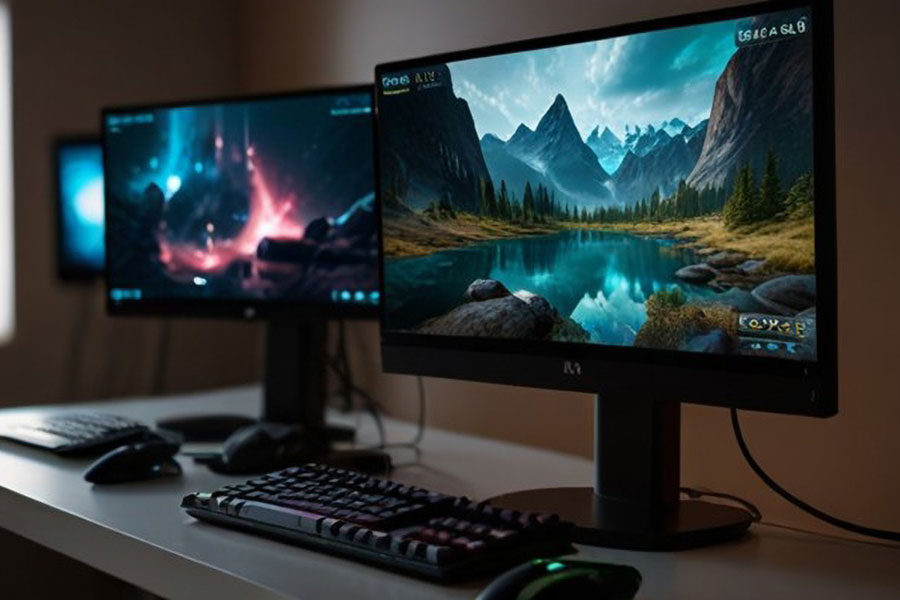
Advantages:
- Compactness fit for any desk shrine.
- Wallet-friendly gateway to premium gaming.
- Pixel density sharp enough to reveal the whispers of the shadow.
- Lightning-fast reflexes meeting or exceeding the 144Hz creed.
Disadvantages:
- May leave adventurers yearning for more canvas.
- Detail seekers might crave beyond the 1080p horizon.
- High-tier graphics armory may feel underutilized.
2. The 27-Inch Behemoth
Venturing into the 27-inch domain unveils a realm where immersion deepens, and visuals stretch far and wide. With resolutions scaling the heights of QHD and 4K, every frame is a canvas, every scene a masterpiece painted with unrivaled clarity and detail.
Advantages:
- A window into immersive realms, expansive and vivid.
- A multitasking coliseum—play, stream, conquer, all in one arena.
- Crisp articulations in QHD or 4K, unveiling the unseen.
- Smooth sailing through tempests with high refresh rates and adaptive sync spells.
Disadvantages:
- Demands a shrine spacious enough for its grandeur.
- A treasure chest heavier to fill than its counterparts.
- Calls for a mighty graphics steed to harness its full glory.
- A wider vista may require more from your gaze.
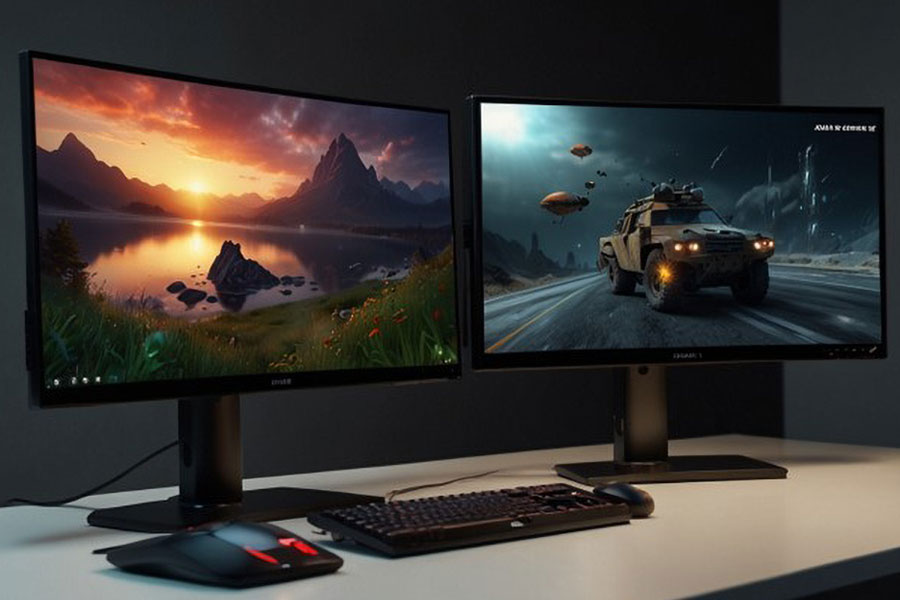
3. The Ultrawide Odyssey: 34 Inches of Glory
In the ultrawide expanse, horizons stretch, engulfing your senses, transcending the mere act of gaming into a cinematic pilgrimage. With the 21:9 aspect ratio, every journey unfolds with unparalleled breadth, inviting adventurers to lose themselves in the endless echo of their digital echoes.
Advantages:
- A panorama that breathes life into virtual worlds.
- The curvature, a bow wrapping the spectacle around your very essence.
- A seamless multitasking chariot, riding through productivity and leisure.
- Detail sharp as a dragon’s tooth in resolutions reaching the peaks of UWQHD or UW4K.
Disadvantages:
- A kingdom demanding its land, sprawling across desks.
- A hoard worth of gold for the claiming.
- A powerful graphics ally, unwavering, to render worlds in their majestic truth.
- The wrath of incomplete support in the realms of older or less accommodating games.
Read more: Improve Gaming Laptop Battery
Big vs. Small: Choosing the Right Monitor Size for Gaming
When it comes to gaming, the monitor you choose can significantly impact your overall gaming experience. One of the key considerations is the monitor size, with gamers often debating whether big monitors are better for gaming or if smaller monitors offer advantages. Let’s delve into the pros and cons of each to help you make an informed decision.
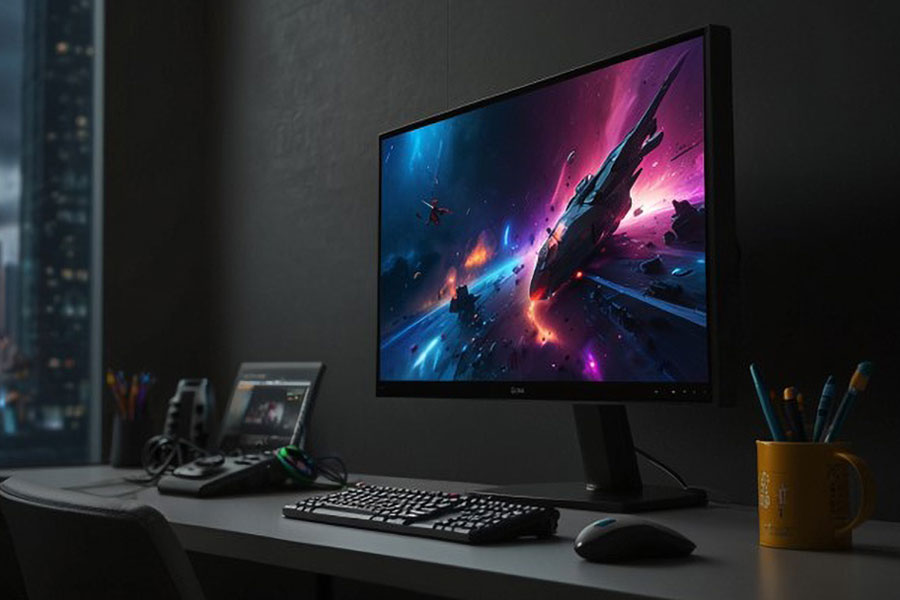
small monitors are beneficial for getting faster response time. but the there’s disadvantages such as reduced detail.
Are Big Monitors Good for Gaming?
The tapestry of gaming is vast, and the choice between colossal vistas and compact arenas is yours to weave. Here lies the essence of the debate:
In Praise of the Titans:
Large monitors, those beyond the 27-inch threshold, are sanctuaries of immersion. They are the gatekeepers of the ultimate visual feast, where every detail is a discovery, and multitasking is but a swift sail. These behemoths advocate for depth, clarity, and a competitive edge afforded by their generous landscapes.
Yet, the Agile Prevail:
Smaller monitors, in their nimble grace, beckon the champions of swift action and precise maneuverability. They offer sanctuary to those who revel in responsiveness, clarity at breakneck speeds, and the blessings of frugality. Their humble stature and sharp senses make them the unsung heroes of the competitive realms.
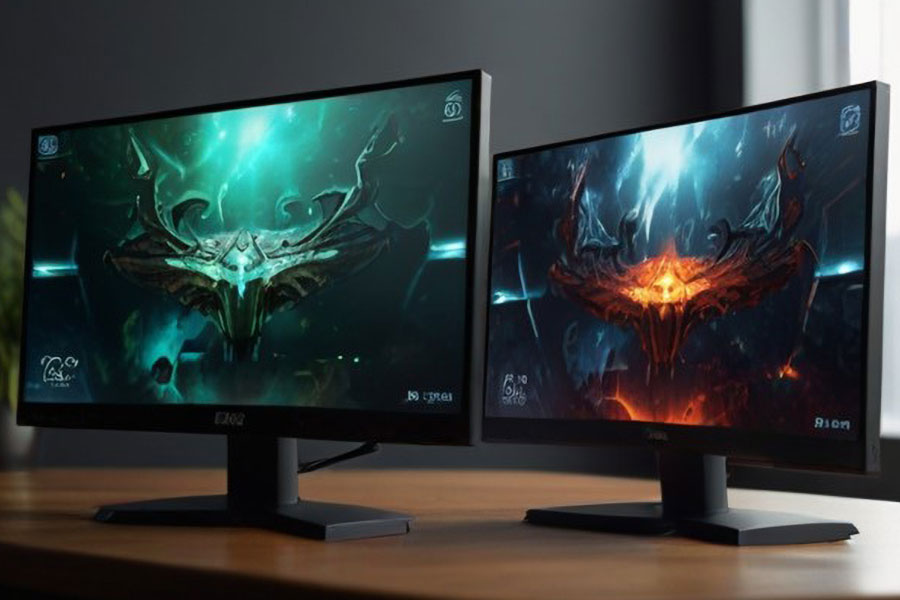
Read More: Mastering Dual Monitors: A Comprehensive Guide to Using a Second Monitor While Gaming
Epilogue: The Chosen Path to Monitor Magnificence
What, then, is the best monitor size for gaming? This holy grail quest hinges upon the heart’s desires, the constraints of the mortal realm (space and treasure), and the soul’s craving for either the depth of immersion or the thrill of competition. Whether you choose the expansive realms of large monitors for a dive into the abyss of virtual worlds or the poised sharpness of smaller displays for the competitive edge, know this: The perfect monitor size is a mirror to your gaming spirit, reflecting your adventures, battles, and tales yet to be told.
Do Titans Enhance the Gaming Pilgrimage?
Yes, the larger monitors, with their sprawling canvases, are the gateways to immersive worlds, offering clarity and space for a multi-faceted gaming experience. They are the chosen realm for those seeking depth and detail.
Do the Nimble Spirits Hold Their Ground?
Certainly, smaller monitors are the steadfast allies of the swift and the agile. Their rapid responsiveness and compactness serve the champions of competitive gaming, where every millisecond is sacred.
What Scrolls Hold the Secret to the Ideal Gaming Monitor Size?
The sacred texts reveal that the ideal size is a blend of personal preference, gaming style, and the earthly constraints of space and budget. Whether you’re drawn to the sweeping epics unfurled by larger monitors or the swift intensity of smaller screens, the paths are many, and one beckons your name.











